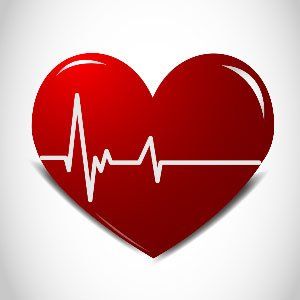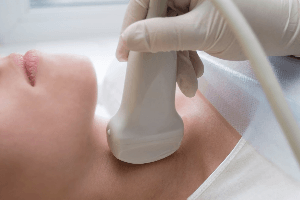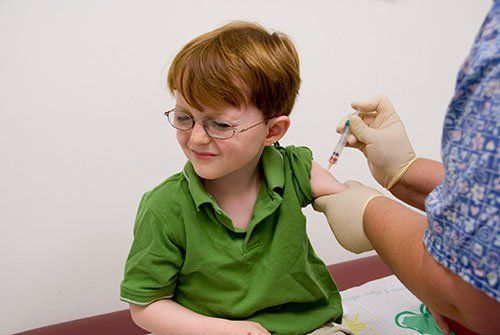The Top Hypothyroidism Questions Answered
Admin • February 21, 2020

Do you feel sluggish or have unexplained weight gain? Your thyroid may be at fault. Before you brush off your symptoms, take a look at what you need to know about hypothyroidism.
What Is Your Thyroid and What Is Hypothyroidism?
To truly understand hypothyroidism, you need to also understand what the thyroid gland is. Everyone has a thyroid. Even though hypothyroidism is more common in women, both sexes have this butterfly-shaped endocrine (hormone system) gland. Located in the neck, the thyroid makes hormones and helps to control the rate of your metabolism.
There are two primary disorders of the thyroid gland: Hyperthyroidism and hypothyroidism. Hyperthyroidism is an overactive gland that speeds up the body's metabolism. This can cause weight loss, rapid heartbeat, sweating, more frequent bowel movements, difficulty sleeping, or increased appetite.
Hypothyroidism is the opposite of hyperthyroidism. In this disorder, the thyroid gland slows down. While an autoimmune disease is the most common cause, some patients experience hypothyroidism after removal or partial removal of the thyroid, following radiation treatment, during inflammation of the gland, or as a congenital issue. Read on for more information on the symptoms of this endocrine problem.
What Are the Symptoms of Hypothyroidism?
This condition comes with a variety of symptoms. While some patients experience several symptoms, you may not have every sign. According to the U.S. National Institutes of Health, hypothyroidism symptoms include weight gain, fatigue, joint/muscle pain, cold intolerance, dry skin, constipation, decreased sweating, thinning hair, depression, slow heart rate, and a puffy-looking face.
Women may also experience heavy or irregular periods. Along with menstrual cycle disruptions, some women with hypothyroidism also struggle with fertility issues.
What Should You Do If You Suspect Hypothyroidism?
Do you have a few, or more, hypothyroidism symptoms? If the symptom list sounds familiar, and you have no other explanation, the doctor's office is your next step. Hypothyroidism requires a medical diagnosis. Even if you have multiple symptoms, don't assume you have the disease.
To diagnose this condition, the medical provider will take a full health history. This includes both your lifetime health history and your family's history. Along with asking questions about your health, the provider will also examine you.
While the doctor's office visit will help the medical provider start the diagnostic process, they'll also need test results before they can confirm hypothyroidism. These include blood tests that measure thyroid-stimulating hormone and thyroxine levels.
Thyroxine is the hormone your thyroid gland releases into the body's bloodstream. Along with metabolism, thyroxine is also necessary for digestive, heart, brain development, and bone health, as well as muscle control.
What Happens After a Positive Diagnosis?
If the test results and exam confirm the doctor's suspicion, and you have hypothyroidism, the medical provider will create a treatment plan. While certain treatments exist that can reduce symptoms, hypothyroidism has no cure. To compensate for low thyroid function, you'll need extra hormone replacement. The medical provider will prescribe synthetic thyroxine pills.
Even though the pills contain a synthetic version of the hormone your thyroid no longer produces, this simulates real thyroxine well enough to control this condition. You'll always need to take this pill to keep your thyroid under control. Without it, you'll begin to experience symptoms again. This makes seeking and continuing medical treatment critical.
Don't expect your medical treatment to end after the doctor diagnoses this condition and prescribes thyroxine replacement pills. You'll need follow-up care to make sure your thyroxine replacement dosage is correct and works for your body. You'll also need routine medical appointments at regular intervals to track your condition.
Are your symptoms signs of a thyroid disorder? Contact Hampstead Medical Center PC
for more information.

The IUD, or intrauterine device, is one of the most effective methods of birth control available. Unlike birth-control pills, you do not need to remember daily to administer medication, and the device itself lasts longer than shots and is easier to use than rings. Many women find all of these benefits desirable for a birth-control method. There are two general types of IUDs available to women. The first type is the copper IUD, and the other is hormonal. Which one is right for your personal birth-control needs?

Although the risk of cardiovascular disease increases as you get older, many people who die suddenly of a heart attack didn't previously know they had heart disease. That's why identifying risk factors for heart attack and stroke is so critical to cardiovascular health. Fortunately, with regular exams and the many types of screening tests available, doctors can detect early signs of heart disease.

Even if you've never had cause to doubt your thyroid function, if you're a female who has recently given birth, you may be at risk for thyroid issues. An estimated 12 percent of Americans deal with thyroid trouble at some point during their adult lives, and women are significantly more likely than men to develop a thyroid-related ailment. Unfortunately for new mothers, many of the most common signs of an underactive thyroid (like weight gain, mood swings, fatigue, and irritability) are also quite common for those dealing with a newborn's frequent night wakings and the realities of a post-partum body. Read on to learn more about some common (and not-so-common) signs that you could be dealing with a pregnancy-induced thyroid problem as well as some treatment options that can be safely administered or performed while you're breastfeeding. What Can Cause Thyroid Problems During Pregnancy? As with many other hormonal disorders, there are often more questions than answers when it comes to thyroid function. However, researchers have pinpointed a few factors and health conditions that can raise the risk of a woman’s developing a thyroid issue during or immediately after pregnancy. For example, while only around 7 percent of women are at a general risk of developing postpartum thyroiditis, this risk increases to 25 percent for women who have Type 1 diabetes or who dealt with elevated antithyroid antibodies during pregnancy. Women whose anti-peroxidase (anti-TPO) antibodies were elevated during pregnancy may have a 1 in 2 chance of developing postpartum thyroiditis, and those who have dealt with thyroid issues in the past (or during previous pregnancies) also deal with a significantly increased risk. In other cases, thyroid problems may have no cause that can easily be pinpointed; the rush of various hormones during pregnancy and the strain they can put on various systems, including the endocrine system, can create a sort of "perfect storm" in which thyroid problems may thrive. What Are Some Signs You're Dealing With Post-Pregnancy Thyroid Issues? Thyroid problems can take a number of forms, including hypothyroidism (an underactive thyroid), hyperthyroidism (an overactive thyroid), Graves' disease (an autoimmune condition that causes goiter), or Hashimoto's disease (an autoimmune condition in which the body's immune system attacks healthy thyroid cells, eventually stopping all thyroid function). The signs and symptoms for each thyroid disorder are unique and often at opposite sides of the spectrum. For example, hypothyroid patients often report being cold, having dry skin, sleeping more than normal, or gaining weight without trying while hyperthyroid patients sweat profusely, suffer from insomnia, and can lose a significant amount of weight in a brief period. Postpartum thyroiditis often manifests as either an underactive or overactive thyroid, which usually normalizes itself in a few months. Symptoms lasting longer than that or that appear to be getting worse may necessitate medical intervention. What Treatment Options for an Underactive Thyroid Are Best for New Mothers? Whether you suspect you have postpartum thyroiditis or have been formally diagnosed, you may be worried about how your potential treatment options could impact your ability to breastfeed and what effect (if any) they might have on your child. Fortunately, there are a number of effective options from which to choose. If your postpartum thyroiditis is deemed autoimmune in origin, there is some evidence that taking selenium supplements could help normalize your thyroid function without requiring you to take hormonal medication (which might pass into your milk supply). If your symptoms aren't severe and don't impact your daily life, you may instead opt for watchful waiting, maintaining contact with your doctor and reporting any worsening symptoms but avoiding medication or other treatment for the time being. However, if your doctor recommends supplemental thyroid hormone, this usually means some intervention is necessary to prevent permanent damage to your thyroid and the organs and systems that depend on a steady dose of hormones. Make an appointment with Hampstead Medical Center PC to get started taking care of your health.







